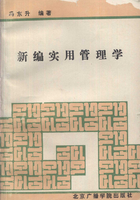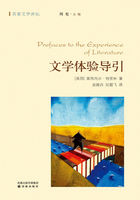Of the two modes of operation by which a form of government or set of political institutions affects the welfare of the community- its operation as an agency of national education, and its arrangements for conducting the collective affairs of the community in the state of education in which they already are; the last evidently varies much less, from difference of country and state of civilisation, than the first. It has also much less to do with the fundamental constitution of the government. The mode of conducting the practical business of government, which is best under a free constitution, would generally be best also in an absolute monarchy: only an absolute monarchy is not so likely to practise it. The laws of property, for example; the principles of evidence and judicial procedure; the system of taxation and of financial administration, need not necessarily be different in different forms of government. Each of these matters has principles and rules of its own, which are a subject of separate study. General jurisprudence, civil and penal legislation, financial and commercial policy, are sciences in themselves, or rather, separate members of the comprehensive science or art of government: and the most enlightened doctrines on all these subjects, though not equally likely to be understood, or acted on under all forms of government, yet, if understood and acted on, would in general be equally beneficial under them all. It is true that these doctrines could not be applied without some modifications to all states of society and of the human mind: nevertheless, by far the greater number of them would require modifications solely of details, to adapt them to any state of society sufficiently advanced to possess rulers capable of understanding them. A government to which they would be wholly unsuitable must be one so bad in itself, or so opposed to public feeling, as to be unable to maintain itself in existence by honest means.
It is otherwise with that portion of the interests of the community which relate to the better or worse training of the people themselves. Considered as instrumental to this, institutions need to be radically different, according to the stage of advancement already reached. The recognition of this truth, though for the most part empirically rather than philosophically, may be regarded as the main point of superiority in the political theories of the present above those of the last age; in which it customary to claim representative democracy for England or France by arguments which would equally have proved it the only fit form of government for Bedouins or Malays. The state of different communities, in point of culture and development, ranges downwards to a condition very little above the highest of the beasts. The upward range, too, is considerable, and the future possible extension vastly greater. A community can only be developed out of one of these states into a higher by a concourse of influences, among the principal of which is the government to which they are subject. In all states of human improvement ever yet attained, the nature and degree of authority exercised over individuals, the distribution of power, and the conditions of command and obedience, are the most powerful of the influences, except their religious belief, which make them what they are, and enable them to become what they can be. They may be stopped short at any point in their progress by defective adaptation of their government to that particular stage of advancement. And the one indispensable merit of a government, in favour of which it may be forgiven almost any amount of other demerit compatible with progress, is that its operation on the people is favourable, or not unfavourable, to the next step which it is necessary for them to take, in order to raise themselves to a higher level.
Thus (to repeat a former example), a people in a state of savage independence, in which every one lives for himself, exempt, unless by fits, from any external control, is practically incapable of making any progress in civilisation until it has learnt to obey. The indispensable virtue, therefore, in a government which establishes itself over a people of this sort is, that it make itself obeyed. To enable it to do this, the constitution of the government must be nearly, or quite, despotic. A constitution in any degree popular, dependent on the voluntary surrender by the different members of the community of their individual freedom of action, would fail to enforce the first lesson which the pupils, in this stage of their progress, require. Accordingly, the civilisation of such tribes, when not the result of juxtaposition with others already civilised, is almost always the work of an absolute ruler, deriving his power either from religion or military prowess; very often from foreign arms.
Again, uncivilised races, and the bravest and most energetic still more than the rest, are averse to continuous labour of an unexciting kind. Yet all real civilisation is at this price; without such labour, neither can the mind be disciplined into the habits required by civilised society, nor the material world prepared to receive it.
There needs a rare concurrence of circumstances, and for that reason often a vast length of time, to reconcile such a people to industry, unless they are for a while compelled to it. Hence even personal slavery, by giving a commencement to industrial life, and enforcing it as the exclusive occupation of the most numerous portion of the community, may accelerate the transition to a better freedom than that of fighting and rapine. It is almost needless to say that this excuse for slavery is only available in a very early state of society.















